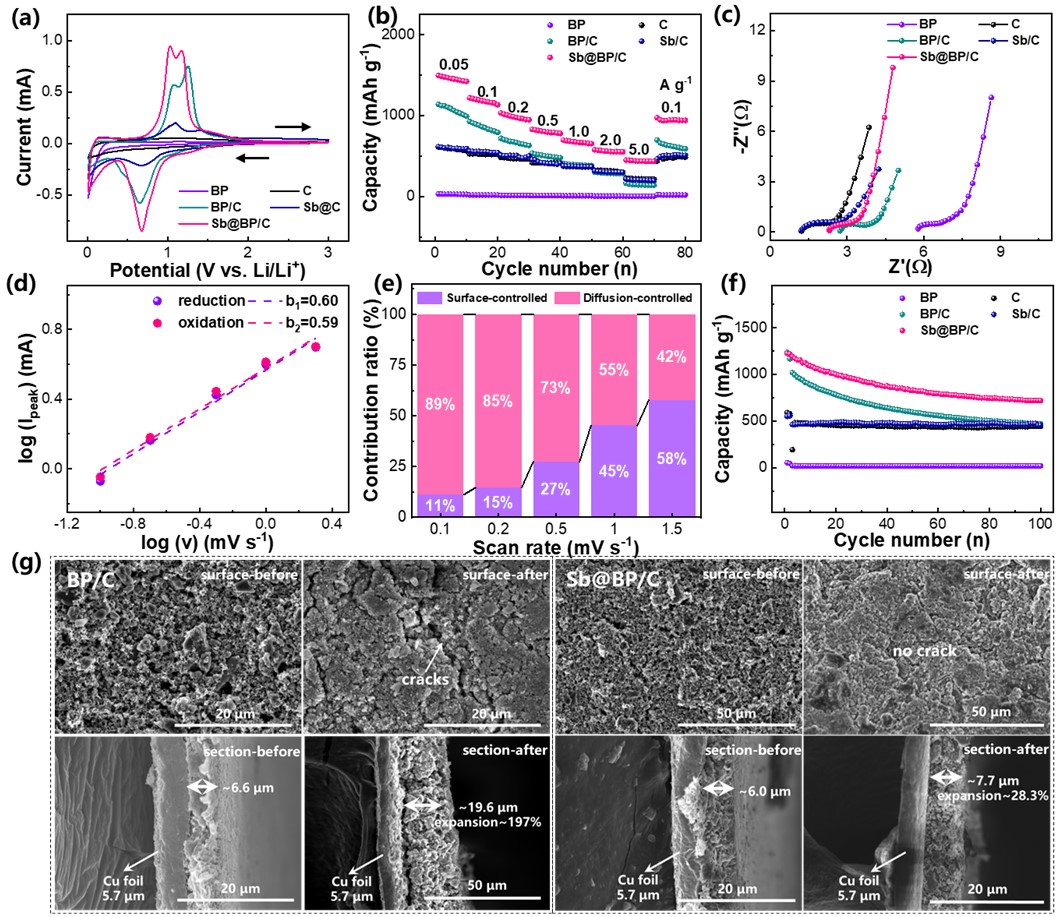Y.B. Ma, K. Wang *, Y.N. Xu, X.D. Zhang, Q.F. Peng, Y. Guo, X.Z. Sun, X. Zhang, Z.-S. Wu * and Y.W. Ma *
Advanced Energy Materials, 2024, 2304408.
DOI: 10.1002/aenm.202304408 [PDF]

Black phosphorus (BP) has been recognized as an alluring fast-charge anode for energy storage due to its substantial theoretical capacity, propitious lithiation potential and large interlayer spacing. Nonetheless, it is encumbered by challenges of its inherent low electronic conductivity, momentous volume expansion (~300%) and pernicious shuttle effect induced by soluble polyphosphides. Here we show a metallic antimony (Sb) covalent bonded BP heterostructure, which promotes the reaction kinetics and greatly ameliorate the cycling performance. Robust P-Sb covalent bonds are methodically engineered to regulate the Femi level, endowing enhanced electronic conductivity. The in-situ generated Li7SbO6 ionic conductor in the P/Sb interface during the lithiation process ensures the fast Li+ transport. Furthermore, Sb offers strong anchoring and chemical adsorption capability on soluble lithium polyphosphate, preventing the shuttle issue. As a result, a lithium-ion capacitor full-cell based on Sb@BP/C anode demonstrates a superior energy density of 174.3 W h kg-1 and a power density of 23.7 kW kg-1, as well as exceptional reversible capacity retention of 84.1% even after 9,000 cycles. This work provides insights into the regulation of reaction kinetics and chemical adsorption capability of BP, offering guidance for designing high-capacity and stable BP-based anodes.